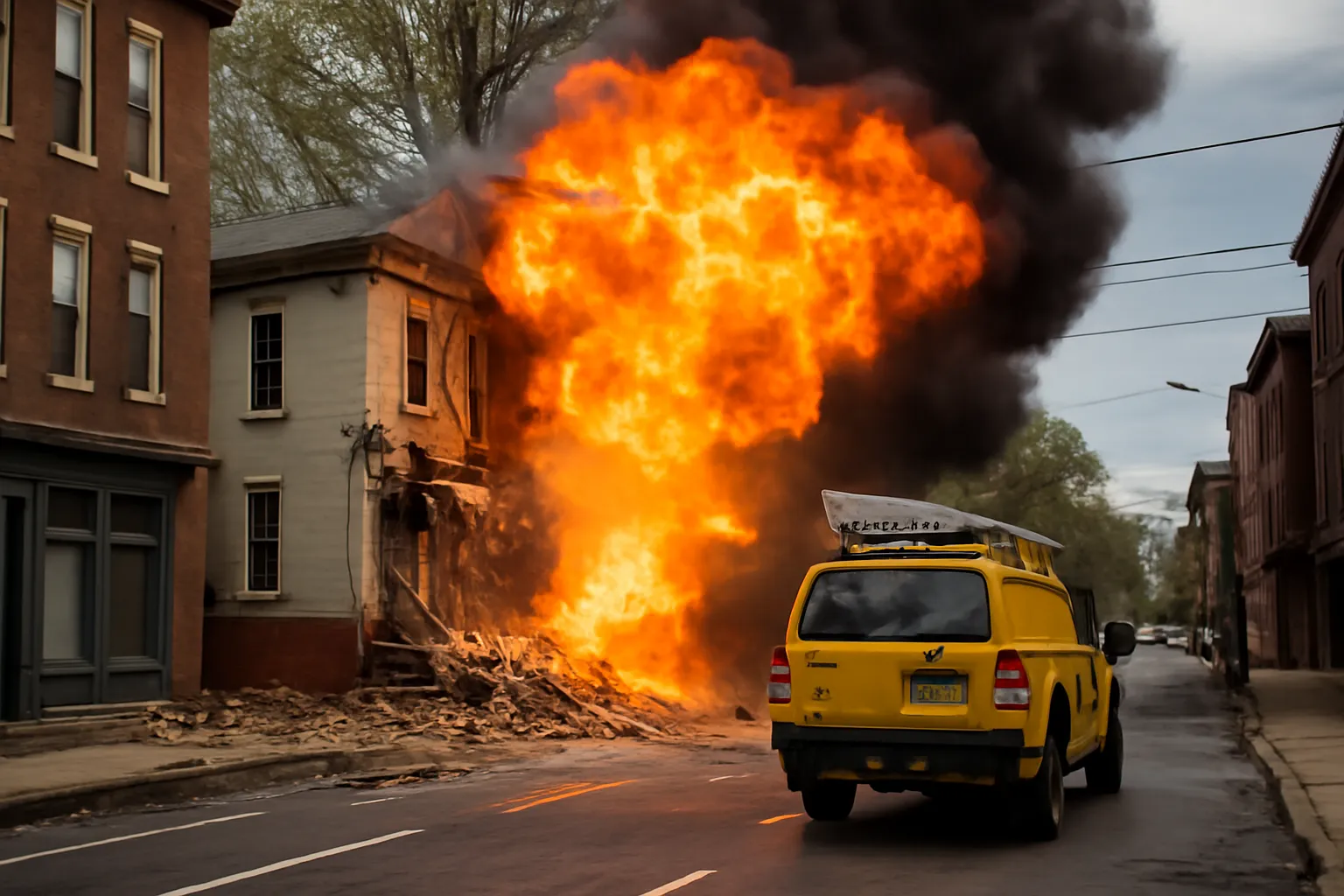What causes city gas explosions, and how can you avoid high gas bills? Learn about the risks and how city gas rates affect safety and economy. Dive deeper into the real reasons behind city gas bombs and explosions.
City gas is essential for most urban areas, powering everything from homes to businesses. But while it’s vital for our everyday lives, the consequences of gas leaks, mishandling, or faulty equipment can be devastating. A city gas bomb, as a term, refers to the catastrophic effects of a gas explosion, which can cause severe damage and even loss of life. Understanding the causes and prevention of such events, along with how gas bills impact residents, is crucial. Let’s delve deeper into the reasons behind city gas explosions and the role rates play in this complex issue.
Reasons for City Gas Bombs
City gas explosions are often triggered by multiple factors, and understanding these causes is essential for prevention. Here are some of the common reasons behind these dangerous incidents:
1. Gas Leak Detection Failures
A primary cause of city gas explosions is the failure to detect leaks in time. Gas leaks may occur due to poorly maintained pipelines, faulty appliances, or human error during installation. Without proper monitoring systems, a leak can go unnoticed, allowing dangerous gas concentrations to build up, leading to a potential explosion.
2. Poor Maintenance and Aging Infrastructure
Many urban areas suffer from outdated or poorly maintained gas infrastructure. Aging pipelines and equipment increase the risk of leaks, especially in older buildings where pipes may have corroded or cracked over time. If these issues aren’t promptly addressed, they can lead to severe accidents. Cities with neglected infrastructure face a higher risk of gas explosions.
3. Human Error and Mishandling
Improper installation of gas appliances or accidental mishandling of gas lines can lead to leaks. This often happens during construction or renovation work when workers inadvertently damage gas pipes. Additionally, incorrect handling of gas pressure regulators and valves can cause an unsafe environment, resulting in a bomb-like explosion if there’s an ignition source.
4. External Factors
Seismic activity, construction accidents, or even external forces like vehicular collisions can damage gas lines. For example, if a construction company accidentally ruptures a gas pipeline while digging, it can cause a significant explosion. Urban areas with a lot of activity face higher risks of such external causes.
Want to know how to detect gas leaks? Click below to learn more!
👉 Learn how to detect gas leaks 👈
City Gas Bill Bomb
The phrase “city gas bomb” doesn’t just refer to explosions—it can also be used to describe the shockingly high city gas bills residents sometimes face. Gas prices can fluctuate based on various factors, causing financial strain for consumers. Understanding these causes and how to manage gas usage is critical.
1. Fluctuating Gas Prices
Gas prices tend to fluctuate due to global supply and demand, government regulations, and energy market shifts. In times of crisis or higher demand, gas prices can skyrocket. Consumers may be caught off-guard by this sudden spike, resulting in unexpectedly high bills—what many refer to as a “city gas bomb.”
2. Inefficient Appliances and Usage
Old or inefficient gas appliances contribute significantly to higher gas consumption. When appliances such as water heaters, stoves, and boilers aren’t running efficiently, they require more energy, leading to increased costs. Many residents aren’t aware of how much energy older models consume until they receive their gas bill.
3. Overestimated Usage by Utility Providers
In some cases, utility companies may estimate gas usage based on previous months’ data or incorrect meter readings. This can lead to inflated bills, leaving residents with more charges than necessary. It’s always a good idea to track actual gas consumption and ensure meters are being read accurately.
4. Increased Demand During Winter
During colder months, gas consumption spikes as homes use heating systems more frequently. This leads to an increase in gas bills, and for many, this seasonal “gas bomb” can be overwhelming. Implementing energy-saving measures, such as better insulation or adjusting thermostats, can help reduce consumption.
Looking for tips to lower your city gas bill? Check out our helpful guide!
👉 How to reduce your gas bill 👈
City Gas Explosion Accidents
The aftermath of a city gas explosion can be tragic. These accidents are often preventable, but they continue to occur, leading to property damage, injuries, and loss of life. Let’s explore why these accidents happen and what can be done to avoid them.
1. Lack of Safety Measures in Buildings
Many buildings, particularly older ones, lack adequate safety measures to prevent or respond to gas leaks. Without gas detectors, automatic shutoff valves, or proper ventilation systems, gas can accumulate quickly. In some cases, the failure to install basic safety mechanisms can turn a minor issue into a full-blown disaster.
2. Delayed Emergency Response
In some cases, gas explosions are exacerbated by delays in emergency response. If residents don’t evacuate quickly or if fire departments aren’t promptly alerted, the consequences of the explosion are often more severe. Timely detection and action are crucial for minimizing damage and saving lives.
3. Improper Gas Usage in Residential Areas
Sometimes, people use gas improperly at home, such as neglecting to turn off stoves, using unapproved gas-powered devices indoors, or attempting to repair gas lines without professional help. These actions can cause leaks or increase the risk of explosion. Education on proper gas safety is essential to prevent accidents.
4. Natural Disasters and Accidental Triggers
In rare cases, natural disasters like earthquakes or floods can cause city gas lines to rupture. Additionally, common triggers like sparks, electrical malfunctions, or open flames can ignite the leaking gas, leading to explosions. Urban planning and disaster preparedness are key to minimizing these risks.
To ensure safety, always maintain your gas appliances. Learn more below!
👉 Safety tips for handling city gas 👈
Understanding city gas explosions, their causes, and how to manage gas bills is critical for every urban resident. While the potential for accidents is high, proper detection systems, maintenance of gas lines, and awareness of how gas works can reduce the chances of disaster. Similarly, managing gas consumption effectively can help avoid an unexpected financial “bomb” in the form of skyrocketing bills.
Gas is a powerful and essential resource in our cities, but it must be handled with care and awareness. By taking preventative measures, ensuring safety protocols are in place, and using gas responsibly, we can avoid the devastating effects of city gas explosions and reduce the likelihood of high gas costs. Remember, safety is always the priority.
“An ounce of prevention is worth a pound of cure.”






